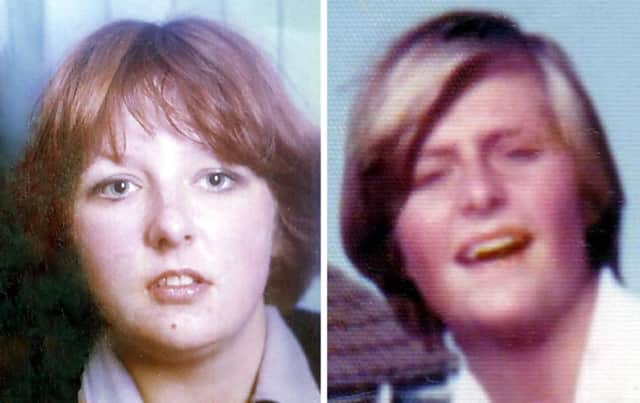World’s End trial: ‘Powerful’ case against accused


Lord Advocate Frank Mulholland, prosecuting, was addressing jurors in the trial of Angus Sinclair, who denies raping and murdering Christine Eadie and her friend Helen Scott.
Mr Mulholland told the jury the girls had suffered a “terrifying” death in “horrific” circumstances.
Advertisement
Hide AdAdvertisement
Hide AdThe 17-year-olds were last seen in Edinburgh’s World’s End pub on 15 October, 1977. Christine’s body was found the following afternoon at Gosford Bay, Aberlady, in East Lothian, while Helen’s body was discovered a few hours later in a wheat field near Haddington.
Sinclair, 69, is accused of carrying out the attacks with his brother-in-law Gordon Hamilton, who died in 1996.
In his closing speech to the jury, who have been hearing five weeks of evidence at the High Court in Livingston, Mr Mulholland said parts of the accused’s story were “ludicrous”.
Sinclair gave evidence earlier this week and said he and Hamilton had met the girls in the pub and later drove to Holyrood Park in his caravanette, where both men had consensual sex with each girl before they all travelled to East Lothian because he wanted to go fishing.
Sinclair said Hamilton had left in the caravanette and he thought the girls were being driven home. He has said they were “alive and unharmed” when he left them.
Mr Mulholland suggested to the jury that the “totality of the evidence is considerable, powerful and quite frankly overwhelming”.
He went on: “It exposes as a lie the incredible story put forward by Sinclair on what he says happened that night.
CONNECT WITH THE SCOTSMAN
• Subscribe to our daily newsletter (requires registration) and get the latest news, sport and business headlines delivered to your inbox every morning
Advertisement
Hide AdAdvertisement
Hide Ad“I invite you as a jury to return a verdict of guilty to both charges that Angus Sinclair was responsible with his brother-in-law Gordon Hamilton for these appalling murders.”
During the trial, the court heard that the two girls had been bound and strangled, with graphic images shown of their bodies and the ligatures used on them.
Mr Mulholland said: “The crimes committed against them were horrific; you can only imagine the terror and suffering these girls must have felt.”
Opening his speech to the jury yesterday, Mr Mulholland said the passing of time had “no effect on justice”.
“The last 37 years has not changed anything for the victims’ families,” he said.
“Morain Scott, Helen’s father, told you how it affected his wife’s health. She died in 1989. He told you how he had to live with what happened to his daughter. That was the beginning of their life sentence. Thankfully, justice has no sell-by date in Scotland.”
The court heard nine days of evidence from forensic scientists Geraldine and Andrew Davidson concerning DNA found on clothing, including tights and a bra used as ligatures.
The Lord Advocate said the analysis, which lasted up to two years and linked Sinclair’s DNA to the ligatures, had been a “magnificent piece of work by two world-class scientists”.
Advertisement
Hide AdAdvertisement
Hide AdSinclair denies the charges against him and has submitted three special defences: blaming Hamilton; alibi – saying he was fishing on the banks of the Firth of Forth near Cockenzie power station at the time; and consent to sexual intercourse.
The jury has also been hearing a closing speech from defence QC Ian Duguid.
Mr Duguid urged the jury to return a verdict of acquittal on both murder charges.
He said they essentially had one issue to address in the case – whether the girls were killed by two men or one. “It’s the only thing for you to decide because the evidence in this case points almost irrefutably towards Gordon Hamilton being the killer,” he said.
“The only thing left for you now is to decide, was Sinclair part of some sort of concerted, common enterprise? That’s all that the case is about.”
He told the jury that if they were to convict Sinclair of any crime, they had to do so on the basis of credible and reliable evidence. He reminded the jury of the standard of proof required in Scots law and spoke to them about the two verdicts of acquittal, not proven and not guilty. “I would commend to you a verdict of acquittal on these two charges,” he said.
The trial continues today, when judge Lord Matthews is expected to give the jury his directions in law.
SCOTSMAN TABLET AND IPHONE APPS